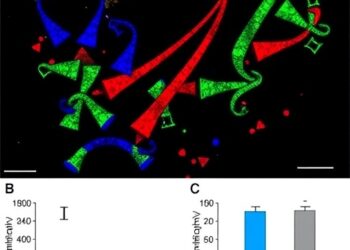Health services should teach patients with eating disorders psychosocial skills to help more people recover and avoid relapse, according to an expert.
Health services should teach patients with eating disorders psychosocial skills to help more people recover and avoid relapse, according to an expert.
Anorexia, bulimia and other eating issues affect millions of people, and eating disorder specialist Bethany Crowley warns that eating disorders are often misunderstood. She suggests a more integrated approach to treating people is needed, to focus on the whole person rather than just the disordered eating.
Quieting negative thoughts, learning to cope with emotional triggers and practicing self-compassion are among nine key skills outlined by the therapist in a new book.
An Integrative Approach to Treating Eating Disorders aims to demystify the complexities and nuances of disordered eating. The intention is also to help patients understand their thoughts, feelings, and behaviors.
Warning signs
An estimated 30 million people are affected every year in the US by eating disorders including anorexia, bulimia and binge eating, and every 62 minutes someone dies as a direct result.
The rate of relapse is high among those who seek treatment.
An Integrative Approach to Treating Eating Disorders includes real-life patient case histories to illustrate the struggles people face with disordered eating.
The author says that eating disorders are hard to treat because everything is a metaphor, and one of the key skills to recovery is understanding the meanings behind food and eating. A bag of crisps, she adds, can serve as a symbol of love and a substitute for a hug.
Sensitivity to rejection, obsessive thoughts, and compensatory behavior such as only eating after exercise are among the many warning signs – or red flags – for a possible eating disorder, Crowley warns. Teaching patients to use their authentic ‘voice’ is key to recovery, Crowley suggests, and learning to quiet negative thoughts.
She also says that people with eating disorders often struggle with daily life and relationships such as social situations, and another key skill is understanding attachment styles and needs to develop healthier relationships.
Other skills include people changing the ‘story’ or ‘narrative’ they have been repeating for years. Crowley says some people regard their eating disorder as a ‘best friend’. “What is needed,” she says, “is for them to learn to let go of their rigid thinking and the belief that they cannot change a negative situation, even when opportunities to do so are available.”
Evidence-based treatment
Crowley’s advice is based on multimodal therapy (MMT), an evidence-based therapy which explores biological, psychological, and social aspects of why someone develops an eating disorder. MMT uses several therapeutic techniques at once, instead of one alone which can mean underlying factors are overlooked.
Crowley, who has 20 years’ experience treating eating disorders, says therapists need to develop a better understanding of patients’ struggles from the time they enter treatment to discharge.
For patients, they are given a framework which they can use to cultivate the skills necessary for a positive recovery.
She says: “Psychoeducation is an essential part of my method in treating eating disorders. Helping clients to understand how their thoughts, behaviors, feelings, and perceptions are connected to their eating struggles and body dissatisfaction has been a cornerstone to the effectiveness of my approach.
“For example, people who struggle with eating often have difficulties asking questions when things don’t make sense which can be due to their anxiety or a need for control. If they don’t ask questions, how can they expect to get better?
“It’s our job to help them gain clarity around their issues, so they can eventually ask the right questions – and then better follow and practice the skills needed for eating disorder recovery.”
An Integrative Approach to Treating Eating Disorders also advises that therapists use a physical and emotional energy scale to help patients identify the body’s cues for rest. A lower number means the person is physically and emotionally tired, and should act on this.
Moreover, the book provides details of how patients can identify their emotional triggers – their ‘window of tolerance’ for emotional discomfort. The upper limit is hyperarousal such as agitation and the lower limit is hypo-arousal such as feelings of hopelessness.




